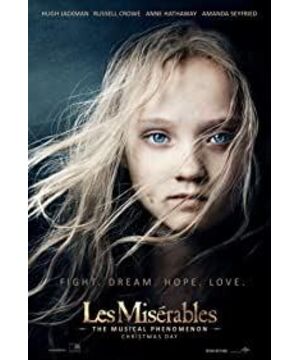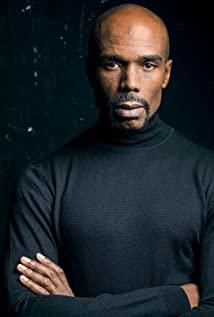As a musical + tragedy, "Les Miserables" was released in the mainland, not only with rave reviews but also a good box office, it can be regarded as a successful "counterattack" in the domestic film market, which also shows the aesthetics of the mainland audience Interests are becoming more diverse.
Recently, while reading Chen Lidan, he mentioned in his book the ethical and orthodox characteristics of the Chinese public's acceptance of traditional literature and art. For thousands of years, the aesthetic taste of Chinese people has always been preset as a "reunion" mode. For this reason, there is no Shakespeare and no Hugo in China.
In ancient Chinese literary works, there are few real tragedies. Habitually put a "light tail" on tragic events, which may have to be understood from the lack of religious belief. Because there is no religious belief and no salvation, it is necessary to achieve justice and consummation in this life (this world), otherwise it will fall into despair and cause a huge moral crisis.
In fact, tragedy is by no means dull and boring, and its enduring vitality lies precisely in its inner rich aesthetic taste: insight into human nature, wonderful narrative, and deep compassion. Western tragedy is a contest between human passion, perseverance and destiny. It is the inevitable manifestation of the brilliance and blind spots of human nature in the course of life, while the Chinese tragedy is more expressed as a kind of emotion permeated in the work: Sad. In this sense, I have to say that "A Dream of Red Mansions" can be regarded as the greatest classic in the history of Chinese literature, not one of them.
About film language:
Tom Hooper's "Les Miserables" is directly adapted from the Broadway musical. It combines two art forms and presents a musical on the big screen with film language. (Btw, TH is also the director of King's Speech)
The application of film and television special effects makes up for the monotony of the stage play in the visual elements. The beginning of the film is a good example: Valjean and other prisoners are desperately dragging a sinking huge ship in the stormy sea... This scene is not only very visual, but also makes Valjean's curse of fate become real and believable. In addition, the film also makes full use of close-up close-ups to show the inner world of the characters more intuitively.
In addition, in terms of color, Paris in the film is covered with British coldness. When Fantine appeared on the stage, the pure pink of her dress indicated that she was bound to be the target of jealousy and besieged by the female workers.
The world shown in "Sorrow" is both magnificent and delicate, and can withstand a microscope like scrutiny: from the era, the characters to the details, it can be called a perfect work. The humanitarianism of "looking downwards" and the eternal spiritual pursuit of "flying upwards" in Western literature still have strong vitality, and they are also the "positive energy" needed by our time.
Regarding the music passages: When
Fantine was slandered and besieged by a group of female workers, the polyphonic chorus showed a sense of oppression that was almost suffocating; and when Fantine expressed the tragic accusation of her own experience, the passage of "I dreamed a dream" sang, It is the extreme emotion that is difficult to reach by language, and the use of music is very moving.
After Valjean rescued the little Cosette, in the song "Suddenly" in the carriage, I instantly thought of the killer Leon's feelings for the little Mathilda in the performance of Uncle Hugh: You've given me a taste for life.. This paragraph is very good. It portrays Valjean's mood changes and fills the gap in his feelings. In fact, when Cosette became an adult, the period when Uncle Hugh entered his boudoir toplessly was really ambiguous. I believe that the director's arrangement must be meaningful.
The death of Gavroche Jr. in "Final Battle" pushed the tragedy to the peak. Later, the soundtrack for Javert putting a medal on Little G was "Bring him home", and in that second, tears came. (Btw, Little G surprises me too!!)
In addition, Eponine's "on my own" is absolutely icy and rainy, heart-piercing, and the hardship is incisive and vivid.
About black and white:
"Sorrow" is an epic about love, grace and redemption. A true epic has not only an era, but also a human soul. The waves of the soul are magnificent, not inferior to the most intense era.
In the world of "Sad", the wild child Gavroche is brave and kind, but swears and likes petty theft; Eponine is in love with Marius, sacrificed for him like a saint, and at the same time, out of jealousy, keeps C's letter private; Valjean also Once discovered the love affair between C and M, which resulted in jealousy and crazy possessiveness... "All those places have their ugly side, which we despise; at the same time, they also have its outstanding side, which we admire." This is the human nature that Hugo understands.
This kind of thorough insight is concentrated on Javert. He grew up in a prison, cultivated a hatred and hateful character, abides by the legal concept, and thinks he is the incarnation of justice. Let go of V, and his thoughts fall into chaos..."It is either V or J" is translated into: V and J are not shared, praise. "Shall his sins be forgiven?... is he from heaven or from hell? When he realized that V had forgiven him, he also let him go, and was shocked. He regarded the law as the supreme throughout his life, and he appeared to be more than the law at this moment. Higher things: love and forgiveness. In an instant, the values of either black or white, evil or good collapsed.
Facing the grace and salvation of love, V chose to accept; and J chose to reject, so he jumped into it. In the gloomy Seine River. Is
Javert a good person or a bad person? It should be said that Javert's integrity is "dark integrity". Why is it dark? Because of the lack of light of love.
Finally, I am unable to complain about the end. End.
View more about Les Misérables reviews











